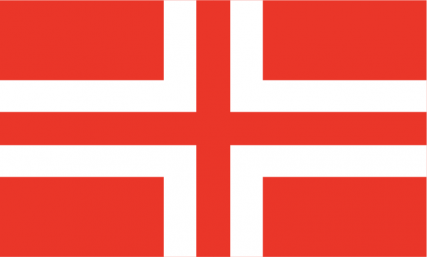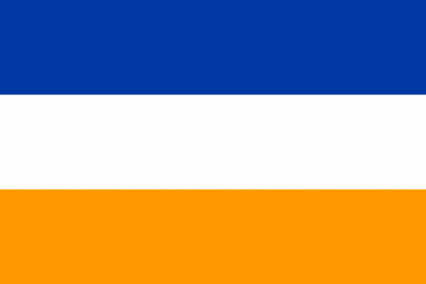
Advertisement

![]() by Noronica » Thu Oct 04, 2018 4:18 am
by Noronica » Thu Oct 04, 2018 4:18 am

![]() by Samudera » Mon Oct 08, 2018 8:46 am
by Samudera » Mon Oct 08, 2018 8:46 am
The Federated Islands of Samudera
Proud member of The Western Isles
Factbook - Economy - Maps - News - Tourism - Isleball - Favourite Quote

![]() by Thuzbekistan » Fri Oct 12, 2018 7:12 pm
by Thuzbekistan » Fri Oct 12, 2018 7:12 pm

![]() by Ludesie » Mon Oct 15, 2018 5:48 pm
by Ludesie » Mon Oct 15, 2018 5:48 pm

![]() by Great Nortend » Mon Oct 15, 2018 8:33 pm
by Great Nortend » Mon Oct 15, 2018 8:33 pm

![]() by The Western Isles Office of Role-Play » Thu Nov 15, 2018 3:07 pm
by The Western Isles Office of Role-Play » Thu Nov 15, 2018 3:07 pm




![]() by Broader Confederate States » Thu Nov 15, 2018 6:30 pm
by Broader Confederate States » Thu Nov 15, 2018 6:30 pm

![]() by Athara Magarat » Fri Nov 16, 2018 4:07 am
by Athara Magarat » Fri Nov 16, 2018 4:07 am
Broader Confederate States wrote:How is social class perceived in your nation?
Who's got the most money. Bonus question: who's the big city folk.
Are there legally or religiously established classes? If so, what are they? How are they perceived?
No, at least no legally established classes.
Are there informal or unofficial, classes? If so, what are they?
Outta-towners, rich folks, and Rebels.
How are these informal classes perceived? Are they hated, or sought after? Why?
Outta-towners are despised if they do nothing to redeem themselves, with rich folks it depends on what they do, and all the other Confederates are equal as brothers.
What marks distinguish classes in your nation?
Holding up a "Black Lives Matter" flag and chanting about perceived racism or sexism isn't going to get you very far. Especially not when the black guy in front of you isn't.

![]() by Domanania » Sat Nov 17, 2018 12:03 am
by Domanania » Sat Nov 17, 2018 12:03 am

![]() by Torom » Sat Nov 17, 2018 9:31 am
by Torom » Sat Nov 17, 2018 9:31 am

![]() by Noronica » Sun Nov 18, 2018 7:45 am
by Noronica » Sun Nov 18, 2018 7:45 am

![]() by Almorea » Sun Nov 18, 2018 8:08 am
by Almorea » Sun Nov 18, 2018 8:08 am

![]() by Cosie » Sun Jan 06, 2019 10:24 pm
by Cosie » Sun Jan 06, 2019 10:24 pm

![]() by The Western Isles Office of Role-Play » Sun Jan 13, 2019 12:31 pm
by The Western Isles Office of Role-Play » Sun Jan 13, 2019 12:31 pm




![]() by Menna Shuli » Sun Jan 13, 2019 2:07 pm
by Menna Shuli » Sun Jan 13, 2019 2:07 pm

![]() by Dormill and Stiura » Sun Jan 13, 2019 7:12 pm
by Dormill and Stiura » Sun Jan 13, 2019 7:12 pm

![]() by The Western Isles Office of Role-Play » Fri Feb 01, 2019 9:23 am
by The Western Isles Office of Role-Play » Fri Feb 01, 2019 9:23 am




![]() by Nhoor » Fri Feb 01, 2019 11:45 am
by Nhoor » Fri Feb 01, 2019 11:45 am

![]() by Creek Islands » Fri Feb 01, 2019 12:58 pm
by Creek Islands » Fri Feb 01, 2019 12:58 pm

![]() by The Western Isles Office of Role-Play » Mon Apr 01, 2019 6:37 am
by The Western Isles Office of Role-Play » Mon Apr 01, 2019 6:37 am




![]() by Nhoor » Mon Apr 15, 2019 10:07 am
by Nhoor » Mon Apr 15, 2019 10:07 am

![]() by Polar Svalbard » Mon May 27, 2019 4:41 pm
by Polar Svalbard » Mon May 27, 2019 4:41 pm




![]() by Athara Magarat » Mon May 27, 2019 5:12 pm
by Athara Magarat » Mon May 27, 2019 5:12 pm
Advertisement
Return to Factbooks and National Information
Users browsing this forum: No registered users
Advertisement